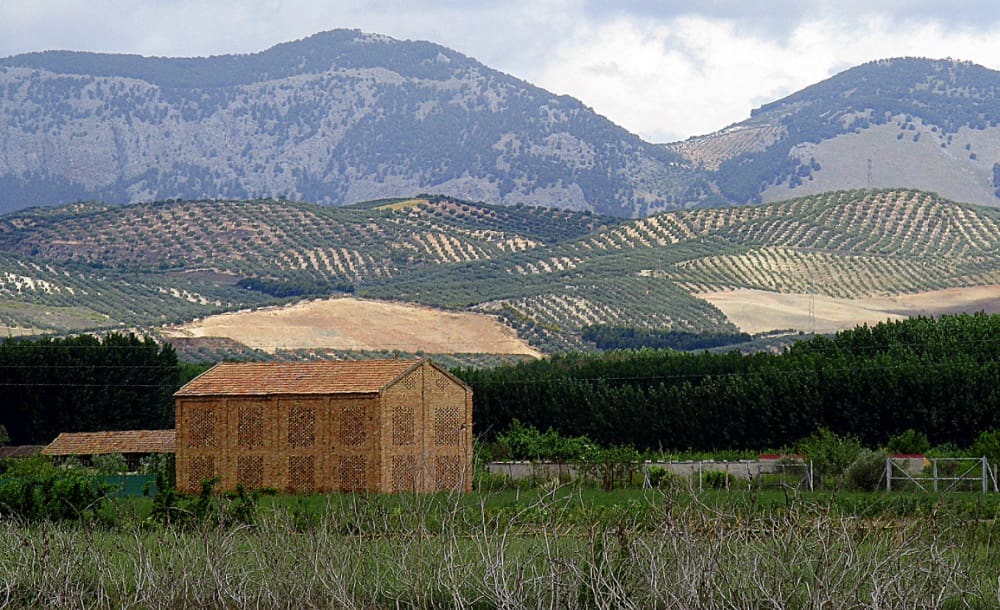

Alejandro García
Climate Change
I’m an environmental journalist hailing from the beautiful city of Seville in Andalusia. My academic background in Environmental Science from the University of Granada has fueled my passion for sustainable agriculture and environmental conservation. Over the past ten years, I’ve been exploring the impacts of climate change on our local agriculture, focusing on the challenges and opportunities it presents. I believe in the power of innovation and resilience, and I’m committed to highlighting the strategies our farmers are employing to adapt to these changes. I hope to use my work to shed light on these critical issues and contribute to a more sustainable future for Andalusia.
This article aims to delve into the impact of climate change on Andalusian agriculture, focusing on specific crops and how farmers are adapting to these changes. It is a journey into understanding the intersection of climate, agriculture, and adaptation in a region where farming is not just a means of livelihood, but a way of life.
Andalusia, a region known for its vibrant culture, historical significance, and picturesque landscapes, is also home to a rich agricultural heritage. Nestled in the southern part of Spain, it is a region where agriculture has been interwoven into the fabric of life for centuries. The fertile lands and favorable climate have made it an ideal location for farming, contributing significantly to the region’s economy and shaping its cultural identity.
However, in recent years, a new challenge has emerged that threatens this age-old way of life – climate change. This global phenomenon, characterized by rising temperatures, shifting weather patterns, and increasing instances of extreme weather events, is not just an environmental issue, but a socio-economic one that has far-reaching implications for sectors like agriculture.
In Andalusia, the effects of climate change are becoming increasingly evident. The region, which is a significant contributor to Spain’s agricultural output, is grappling with the challenges posed by these changes. The once predictable seasons are becoming less so, and the weather patterns that farmers have relied upon for generations are shifting in ways that are difficult to anticipate.
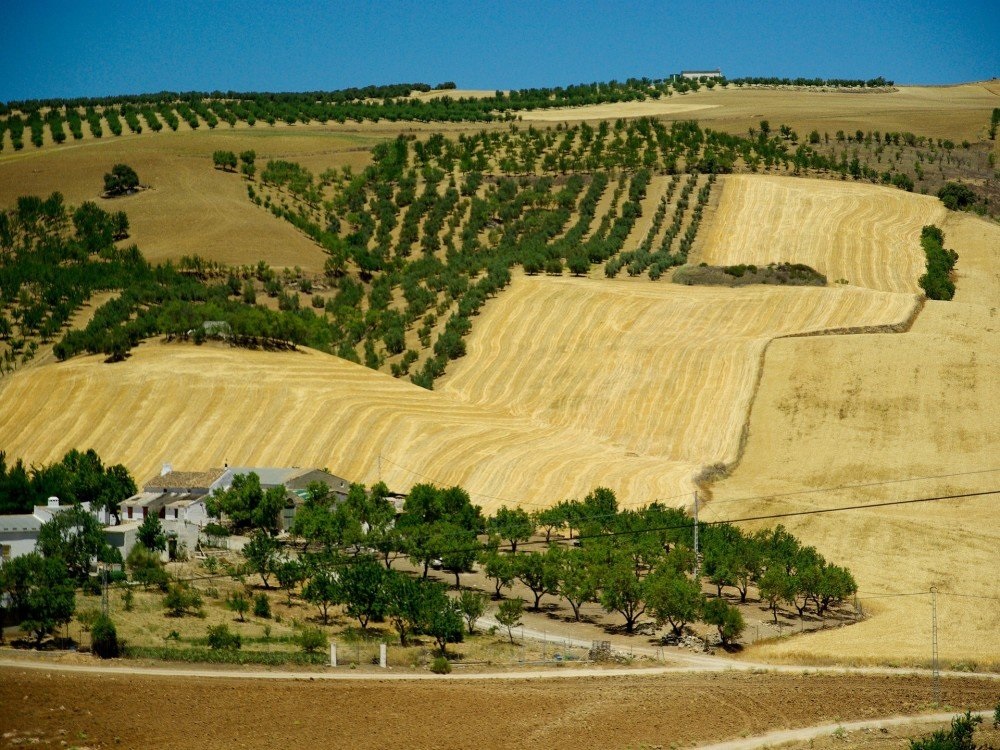

The Climate of Andalusia
Andalusia, located in the southernmost part of Spain, is blessed with a climate that is as diverse as its landscapes. The region experiences a Mediterranean climate, characterized by hot, dry summers and mild, wet winters. However, due to its vast geographical expanse, the climate can vary significantly from the coastal areas to the inland regions and the mountainous zones.
The coastal areas, which include the Costa del Sol and Costa de la Luz, enjoy mild temperatures throughout the year, thanks to the moderating influence of the Atlantic Ocean and the Mediterranean Sea. Summers are warm but not excessively hot, while winters are mild with temperatures rarely dipping below 10 degrees Celsius. This temperate climate has made the coastal areas ideal for the cultivation of a variety of fruits and vegetables, as well as for tourism.
Moving inland, the climate becomes more continental. The summers are hotter, and the winters are colder, with temperatures often dropping to freezing in the higher altitudes. Despite these extremes, the inland areas are fertile and are particularly suited for the cultivation of olives, a crop that Andalusia is famous for.
The mountainous regions of Andalusia, which include the Sierra Nevada and the Sierra de Grazalema, experience a different climate altogether. These areas have a highland climate, with heavy snowfall in the winter and mild summers. While not as agriculturally productive as the coastal and inland areas, these regions play a crucial role in the region’s water supply, with the snowmelt from the mountains feeding the rivers and reservoirs.
However, this diverse and balanced climate, which has been a boon for agriculture in Andalusia, is now under threat from climate change. Rising temperatures, changing rainfall patterns, and increased frequency of extreme weather events are disrupting the delicate climatic balance that has made Andalusia an agricultural powerhouse.
Ignite Your Passion for Spanish with Us!
Are you ready to dive into a new language and immerse yourself in a vibrant culture? Whether you’re dreaming of the bustling streets of Buenos Aires, the sun-soaked beaches of Malaga, or the convenience of learning from the comfort of your own home, we’ve got you covered!


Experience Buenos Aires
Join us at our language school in Argentina. Immerse yourself in the local culture, explore the city’s rich history, and let the rhythm of Buenos Aires fuel your language learning journey.
Discover Malaga
Picture yourself learning Spanish under the warm Andalusian sun. Our Spanish school in Malaga offers a unique blend of high-quality education and a relaxed, beach-side lifestyle. It’s more than just a language course, it’s the adventure of a lifetime!
Learn Spanish Online
If travel isn’t on the cards right now, don’t worry! Our online Spanish classes bring the language to you. Enjoy interactive, engaging lessons with our experienced teachers, all from the comfort of your own home.
The Agricultural Sector in Andalusia
Andalusia’s agricultural sector is as diverse as its climate, with a variety of crops cultivated across its vast landscapes. The region is often referred to as the ‘garden of Spain’ due to its significant contribution to the country’s agricultural output. From the fertile plains to the rolling hills and the coastal areas, agriculture is an integral part of Andalusia’s economy and culture.
One of the most iconic crops of Andalusia is the olive. The region is the largest producer of olive oil in the world, with vast expanses of land covered with olive groves. The olive oil from Andalusia is renowned for its quality and flavor, and it forms an essential part of the local cuisine as well as the economy.
In addition to olives, Andalusia is also known for its vineyards. The region produces a variety of wines, including the famous sherry from the Jerez region. The vineyards of Andalusia, with their unique microclimates, produce wines that are as diverse as they are flavorful.
The fertile plains and the coastal areas of Andalusia are ideal for growing a variety of fruits and vegetables. The region is a major producer of citrus fruits, strawberries, and other berries. The greenhouses of Almeria, often referred to as the ‘sea of plastic’ due to their vast expanse, produce a significant portion of Europe’s fruits and vegetables.
Despite its success, the agricultural sector in Andalusia is facing significant challenges due to climate change. The changing weather patterns and rising temperatures are affecting crop yields and forcing farmers to adapt their practices. However, the resilience and adaptability of the Andalusian farmers are noteworthy as they strive to overcome these challenges and sustain their way of life.
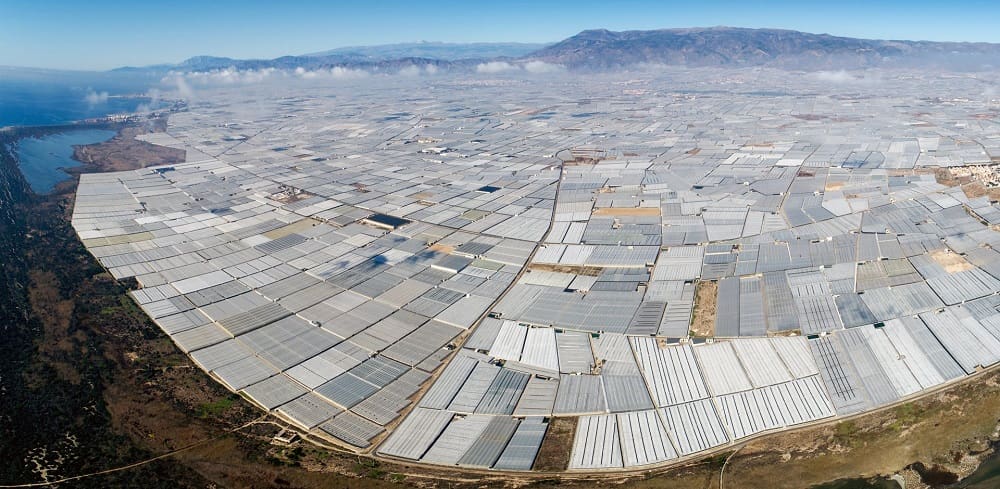

The Impact of Climate Change on Agriculture in Andalucia
Climate change is a global phenomenon that has far-reaching implications for various sectors, and agriculture is no exception. The agricultural sector, which is heavily dependent on the weather and climate, is particularly vulnerable to the changes brought about by this global issue.
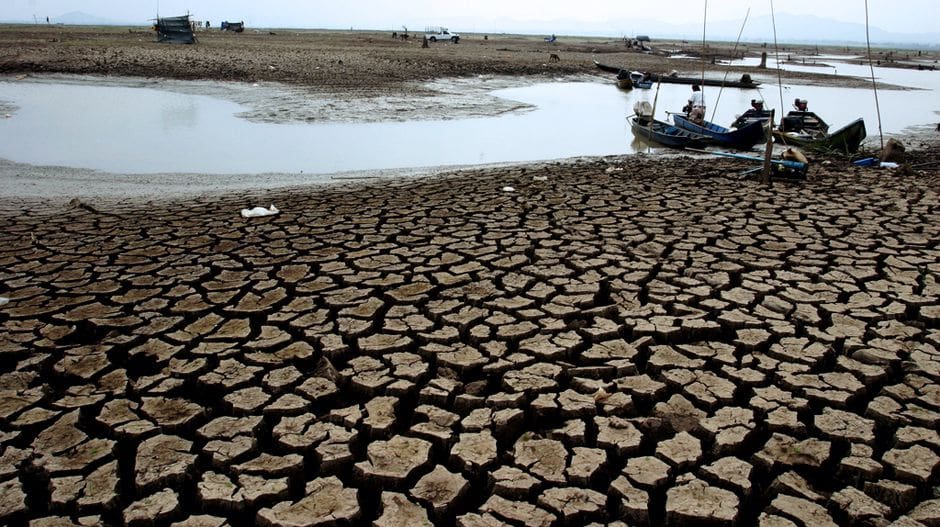

The effect of Global Warming
This image powerfully illustrates the devastating effects of global warming on agricultural lands, highlighting the urgent need for adaptive strategies in farming.
In Andalusia, the impacts of climate change on agriculture are becoming increasingly evident. Rising temperatures, shifting rainfall patterns, and the increasing frequency of extreme weather events are posing significant challenges to the region’s farmers.
One of the most immediate impacts of climate change is the alteration of growing seasons. Rising temperatures can lead to earlier springs and extended summers, disrupting the traditional planting and harvesting schedules. While this may initially seem beneficial, it can lead to mismatches between crop growth stages and optimal weather conditions, potentially reducing yields.
Changes in rainfall patterns are another significant concern. While Andalusia is no stranger to dry conditions, especially in the summer, the region has traditionally relied on winter and spring rains to replenish water supplies and irrigate crops. However, climate change is leading to less predictable rainfall patterns, with periods of drought becoming more frequent and prolonged, and rainfall becoming more intense and sporadic. This not only affects the availability of water for irrigation but also increases the risk of soil erosion and flooding.
Extreme weather events, such as heatwaves, storms, and frosts, are also becoming more frequent due to climate change. These events can cause significant damage to crops, leading to reduced yields and increased costs for farmers.
While these challenges are daunting, they are not insurmountable. The farmers of Andalusia are showing remarkable resilience and adaptability in the face of these changes, employing various strategies to mitigate the impacts of climate change on their livelihoods.
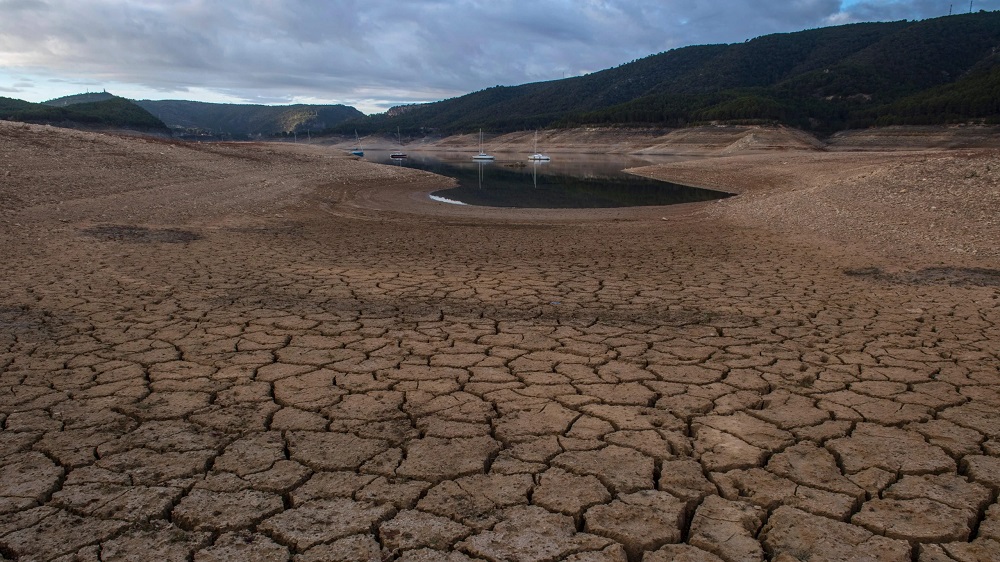

Adapting to Climate Change: Strategies and Innovations for the Andalusian region
In the face of the challenges posed by climate change, the farmers of Andalusia are not standing idle. They are proactively seeking ways to adapt their practices and innovate to ensure the sustainability of their livelihoods and the region’s agricultural sector.
One of the key strategies being employed is the adoption of more efficient irrigation systems. Given the increasing unpredictability of rainfall, efficient water use has become more critical than ever. Farmers are turning to technologies such as drip irrigation and precision agriculture, which allow for the targeted application of water, reducing waste and ensuring that crops receive the water they need.
Another strategy is the diversification of crops. By growing a variety of crops, farmers can spread the risk associated with climate change. If one crop fails due to adverse weather conditions, others may still thrive. Diversification can also improve soil health and biodiversity, enhancing the resilience of the farm ecosystem.
Farmers are also exploring the use of more climate-resilient crop varieties. Through selective breeding and biotechnology, it is possible to develop varieties that are more tolerant to heat, drought, and other stressors associated with climate change.
In addition to these on-farm strategies, there is also a need for supportive policies and initiatives at the regional and national level. This includes investment in research and development to develop new technologies and practices, as well as policies that encourage the adoption of climate-smart agriculture.
While the challenges posed by climate change are significant, the resilience and adaptability of the farmers of Andalusia give reason for optimism. With the right strategies and support, it is possible to adapt to the changing climate and ensure the continued vitality of the region’s agricultural sector.


The Future of Andalusian Agriculture in a Changing Climate: The Adoption of Climate Smart Practices
As we look to the future, it is clear that climate change will continue to be a defining issue for Andalusian agriculture. The challenges are significant, but so too are the opportunities for innovation and transformation.
The continued development and adoption of climate-smart agricultural practices will be crucial. This includes not only technological innovations, such as more efficient irrigation systems and climate-resilient crop varieties, but also changes in management practices, such as crop diversification and improved soil management.
Research and development will play a key role in this process. By investing in research, we can develop new technologies and practices that will help farmers adapt to the changing climate. This includes not only agronomic research but also social and economic research to understand the barriers to adoption and how they can be overcome.
Education and training for farmers will also be essential. Farmers need to be equipped with the knowledge and skills to implement climate-smart practices effectively. This includes understanding the impacts of climate change, the benefits of different adaptation strategies, and how to implement them in their specific context.
Policy support will also be crucial. This includes policies that incentivize the adoption of climate-smart practices, as well as policies that support farmers in managing the risks associated with climate change. This could include, for example, crop insurance schemes that protect farmers against crop losses due to extreme weather events.
While the challenges posed by climate change are significant, they are not insurmountable. With the right strategies, support, and commitment, we can ensure a sustainable and resilient future for Andalusian agriculture in a changing climate.
Rising to the Challenge of Climate Change: In the Face of Climate Change…
The impacts of climate change on Andalusian agriculture are significant and far-reaching. Rising temperatures, shifting rainfall patterns, and increasing frequency of extreme weather events are posing unprecedented challenges to the region’s farmers. However, these challenges are not insurmountable.
The farmers of Andalusia have shown remarkable resilience and adaptability in the face of these changes. They are adopting innovative strategies and technologies to conserve water, diversify their crops, and develop more climate-resilient farming systems. With the support of research, education, and policy initiatives, they are transforming their practices to ensure the sustainability of their livelihoods and the region’s agricultural sector.
The journey ahead is not without its difficulties. However, the determination and ingenuity of Andalusian farmers give us reason for optimism. As they rise to the challenge of climate change, they are not only securing their own futures but also contributing to the broader efforts to mitigate the impacts of climate change and build a more sustainable and resilient food system.
In the face of climate change, the story of Andalusian agriculture is one of resilience, innovation, and transformation. It is a story that offers valuable lessons and inspiration for other regions and sectors grappling with the impacts of climate change.
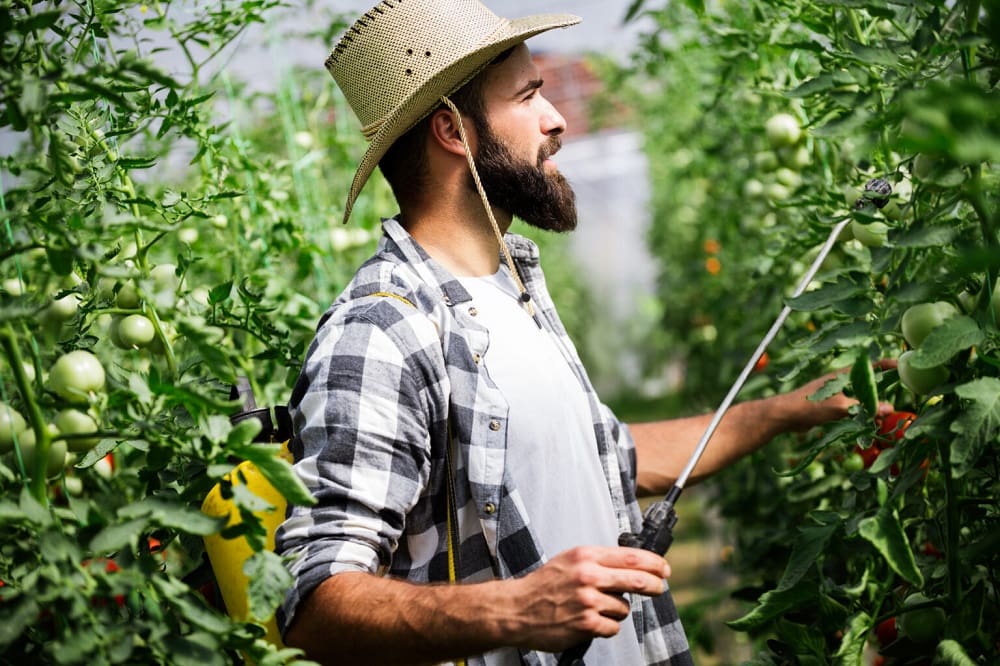

Further Reading and Resources
For those interested in learning more about the impact of climate change on Andalusian agriculture and the strategies being employed to adapt, there are numerous resources available. These include scientific articles, reports by agricultural and environmental organizations, and documentaries that provide a more in-depth look at the issues discussed in this article.
In addition, there are also resources available for farmers who are looking for practical guidance on implementing climate-smart agricultural practices. These include technical guides, online courses, and advisory services that provide tailored advice based on the specific conditions and needs of individual farms.
While the challenges posed by climate change are significant, they also present opportunities for learning, innovation, and transformation. By equipping ourselves with knowledge and taking proactive steps to adapt, we can not only mitigate the impacts of climate change but also build a more sustainable and resilient agricultural sector. For more blogs check our website https://vamospanish.com/Discover






